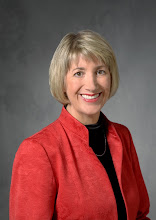Five years ago, the vice president of a large healthcare system called and said, "We're interested in hiring you to provide customer service training for the staff at all of our clinics."
A week later, I met with members of the executive team to discuss the company's training objectives. They described their goal of building patient loyalty in their outpatient clinics. They were ready to invest in a major training initiative to improve the customer service and communication skills of their clinical staff. I was excited about the prospect of acquiring a lucrative training contract with this prestigious firm.
Then I asked the fatal question, "Will the doctors be required to attend?"
The group let out a collective gasp and the CEO said, "Oh, no. This is just for the nurses and support staff. The doctors would never agree to attend customer service training. They're too busy."
I replied, "But the training will only be effective if it's a top-down initiative. Some doctors are weak in their customer service skills. Many don't set the tone for building patient loyalty because they don't treat their staff as internal customers."
The team was surprised when I told them I would need to decline the training contract unless the doctors were required to participate. I explained that I was concerned that employee morale would decline if doctors were not held accountable for delivering the same quality of customer service required by the rest of the staff.
After more discussion, the team asked me if I would be willing to present a keynote to a group of doctors as a sample of the longer training seminar. I agreed and, a few weeks later, the company offered me the training contract. I would be responsible for training all the clinical staff including the doctors.
Due to their hectic schedules, the training seminars for the doctors were held during evening hours. To my amazement, the majority of these individuals attended with an enthusiastic attitude and embraced the learning. Many admitted that they had not considered the impact of internal customer service on their own staff. They also did not realize how much their behavior toward their co-workers was a model for how the rest of the staff behaved toward the patients.
The doctors liked to poke fun at me and started calling my training seminars, "Deb Schmidt's Charm School." I didn't mind. I enjoyed their humor and was rewarded with scores of phone calls and emails from staff members thanking me for involving the doctors in the training. They indicated that there was a marked difference in the way co-workers were communicating with one another, resulting in an atmosphere of respect and consideration.
Recently, I was buying a cup of coffee when one of these physicians walked over and said, "I don't know if you remember me but I attended your customer service training a few years back. I just wanted to let you know, I'm still being nice!"
Today’s clinics are losing patients and employees in record numbers. Patient loyalty is on the decline, but many clinics are treating the symptoms instead of the causes of their patient retention problems. Set your goals to create loyal patients. But keep in mind that patient loyalty starts with the internal customers—employees and co-workers; and it’s a top-down initiative. It must start with the doctors.
In a June, 2006 Loyalty Leader Survey, 68% of respondents reported "a doctor who takes time to answer all their questions" is the most important aspect of service in a doctor's office or clinic.
Consider the following:
· If employees are unhappy, you’re probably losing patients as a result. On average, American companies lose half of their employees every four years and half of their customers every five years. This suggests that employee attrition may have a significant impact on patient loyalty.
· Workplace attitudes are significantly affected by the way employees are treated by their bosses. One of the most important aspects of improving patient retention is a total commitment by the doctors to building patient loyalty. This commitment must be demonstrated daily at all levels of the organization for the employees to clearly observe it.
· Patient loyalty is the responsibility of everyone within the organization. In order to create a loyalty-focused culture, customer service training needs to start at the top.
· Doctors also need to recognize that their employees are their primary customers. Employees deserve and expect the same caring service that is given to the patients.
· Patient loyalty is earned by consistently exceeding patient and employee expectations through outstanding service. This level of service can be achieved only when doctors are held accountable for their internal customer service skills--in other words, for how they deal with their employees and co-workers.
health
business
Thursday, June 08, 2006
Subscribe to:
Post Comments (Atom)


1 comment:
Patient loyalty is all well and good for the Medical facility, but what about Doctor loyalty to the patient?
I recently lost my primary doctor without notice and my GI doctor also without notice. I spent years building up a trusting relationship with both doctors and now I feel like an orphan left behind in the devorce.
Why couldn't I have been given notice via mail or a phone call? Why am I left hanging on trying to get my prescription filled and find out it can't be done unless one of the "new" doctors decides to get off his high horse an "allow it" to be filled.
What now? It makes me want to give a collective smack to the whole profession, but I need doctors I can rely on. It's like they both died and I'm scrambling to find a new trustworthy friend.
Post a Comment